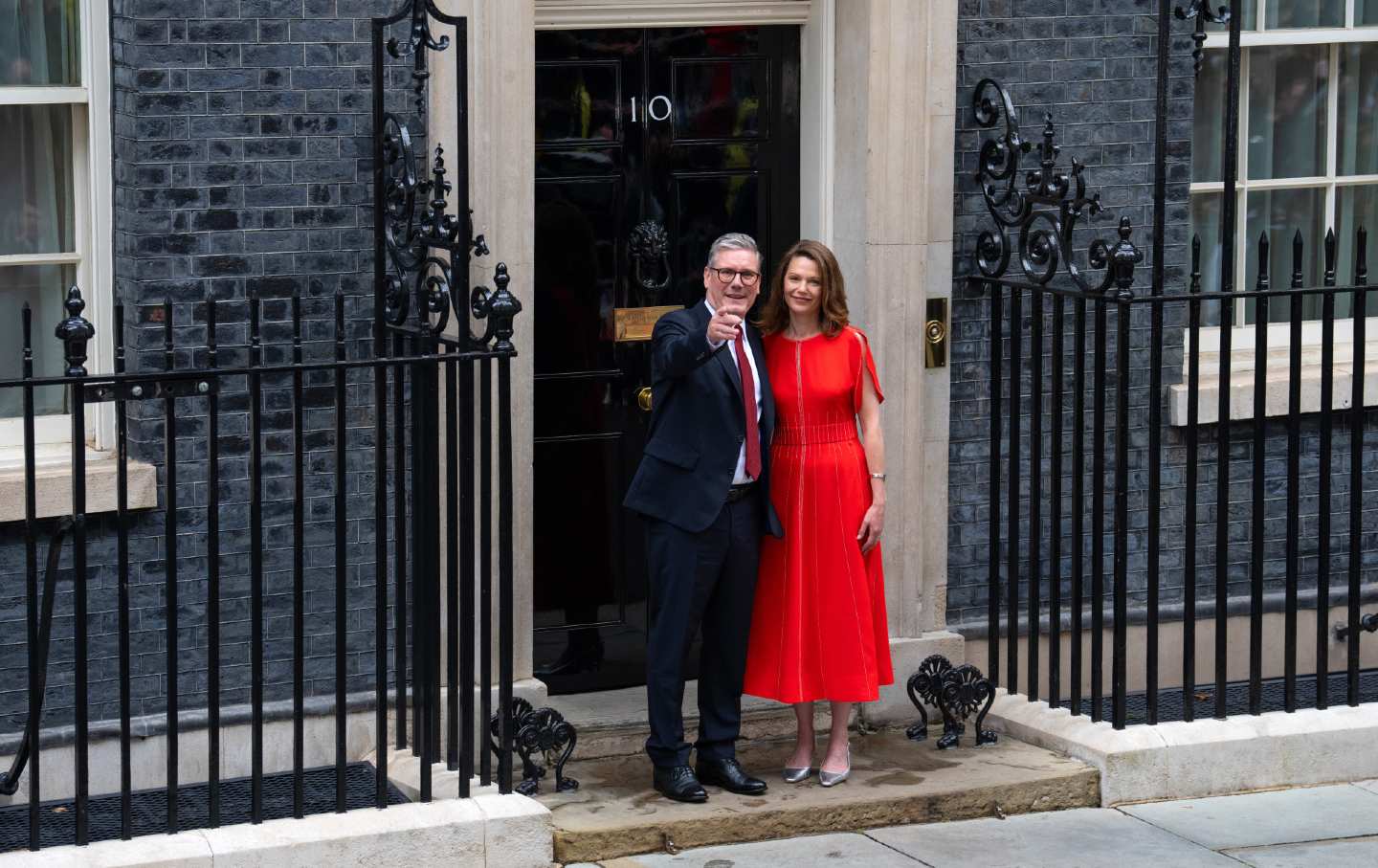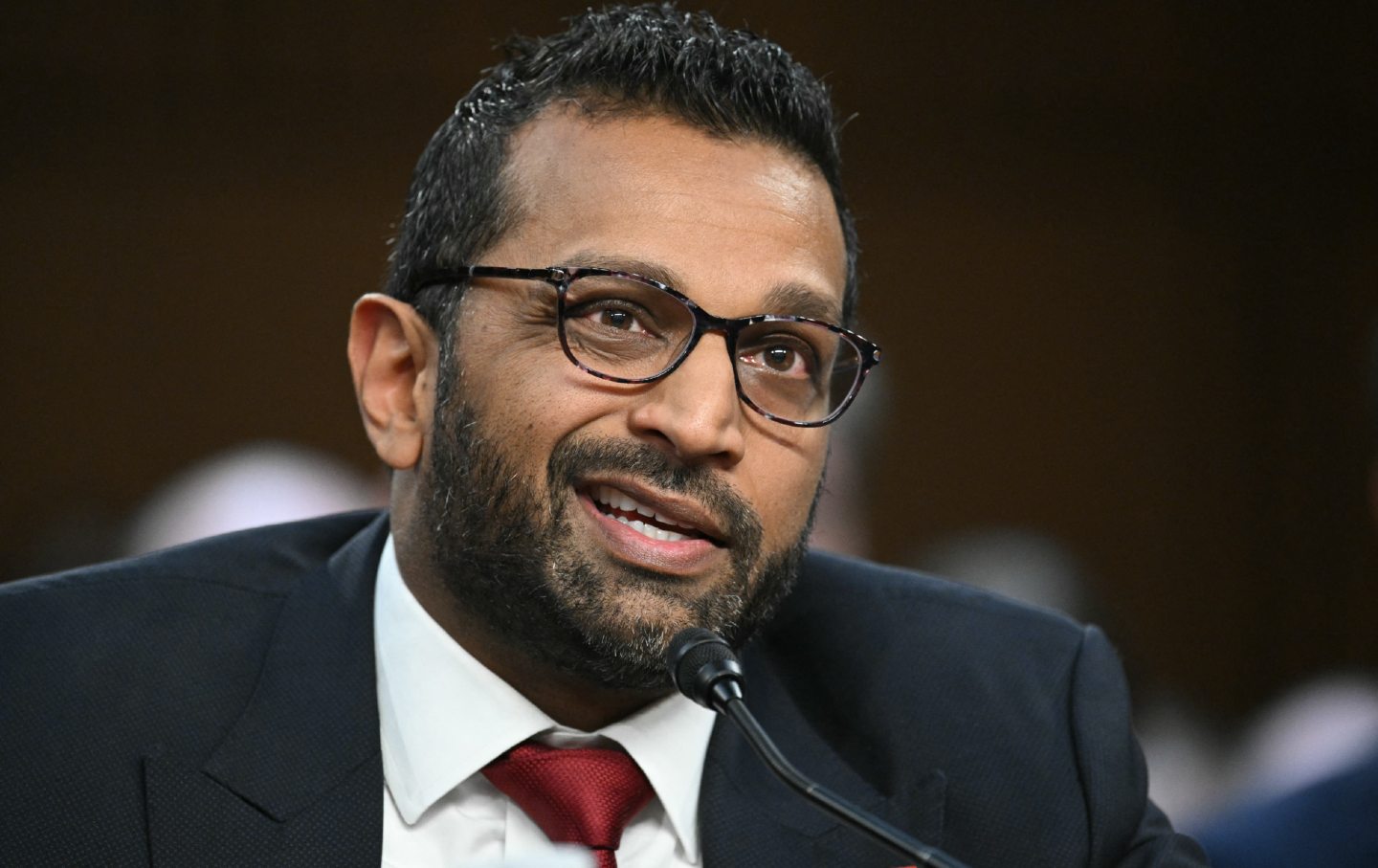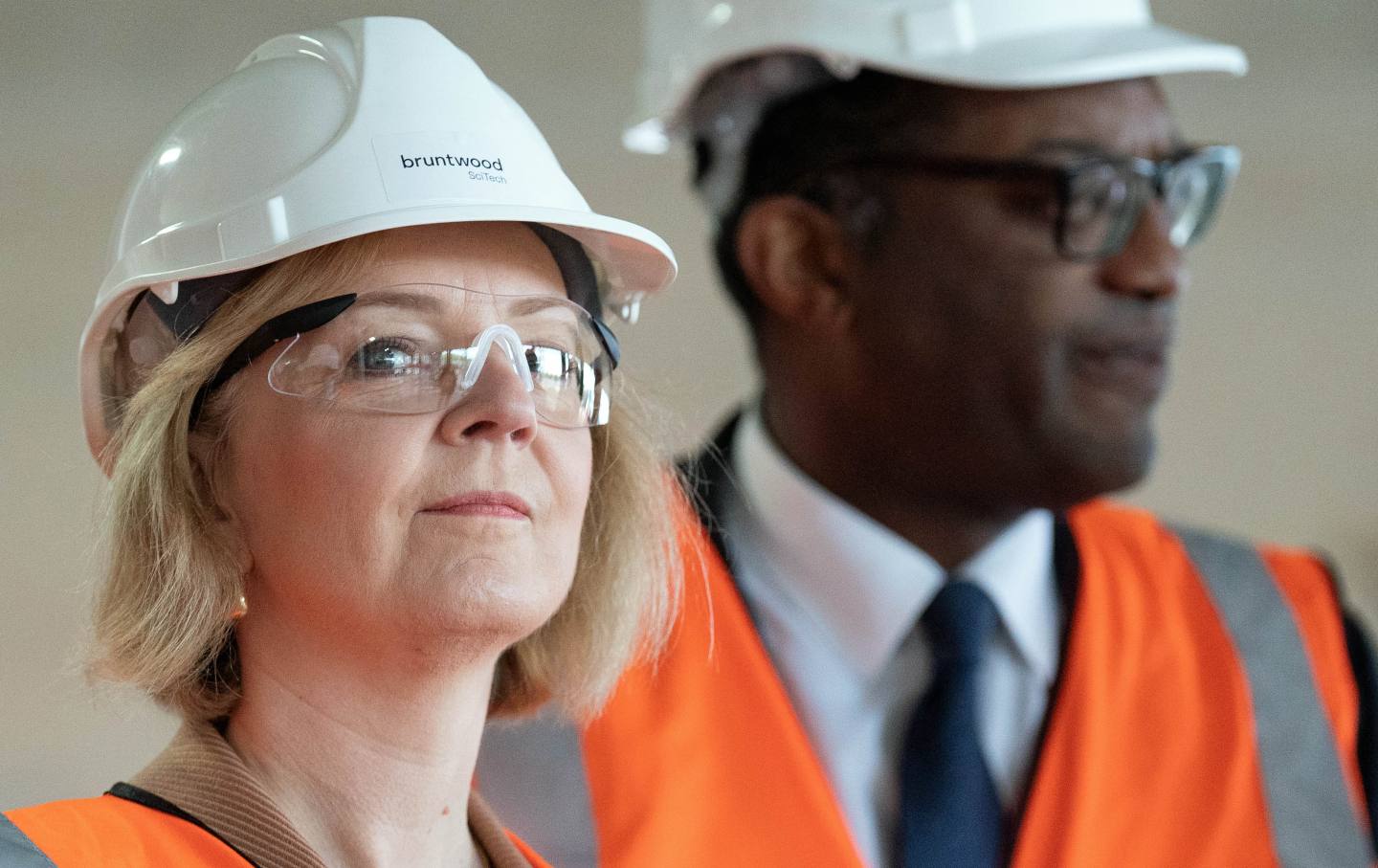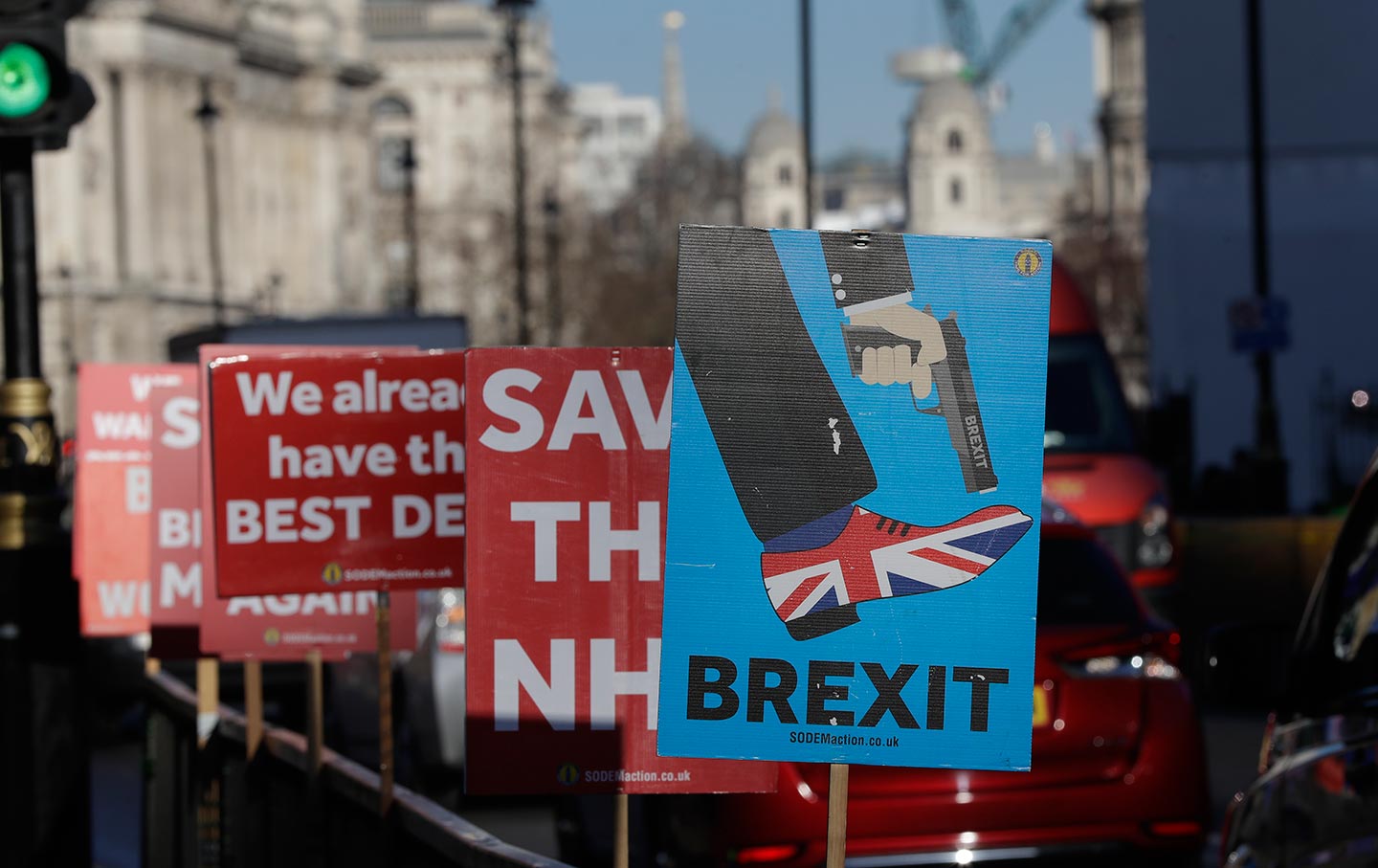Labour’s Historic Victory Belies Deep Fault Lines in British Politics
Keir Starmer has won a huge parliamentary majority—despite a fall in the Labour vote.

Britain’s general election saw the Labour Party achieve its biggest majority since 1997, yet it did so with less popular support (9.69 million votes) than in the last election in 2019 (10.27 million) when it suffered its worst defeat—in terms of seats in Parliament—since 1935. Even allowing for the usual vagaries of the first-past-the-post system in Westminster elections, this mismatch between votes and seats is extraordinary.
So, what happened? The electoral arithmetic is that Labour made huge gains primarily because Nigel Farage’s Reform UK party split the right-wing vote in Conservative-held seats. According to BBC pollster John Curtice, the Conservatives would have retained two-thirds of the seats they lost to Labour if their supporters had not defected to Reform.
The conditions for this were created, however, well before election day. The credibility of the Conservatives had already plummeted thanks, mainly, to the antics of its previous leaders Boris Johnson, who broke Covid lockdown rules and then lied about it, and Liz Truss, who had to resign after only 45 days in office because her sweeping, unfunded tax cuts had triggered a financial crisis. Their successor as prime minister, Rishi Sunak, then made his own contribution to his party’s demise early in the election campaign by leaving the 80th anniversary of D Day celebrations in France early and being forced to apologize for insulting the frail veterans who had made the journey and stayed through the celebration.
These self-inflicted wounds—combined with Reform UK offering a right-wing alternative—meant that, while Labour’s vote share edged up only slightly from 32.1 percent in 2019 to 33.7 percent, the Conservative share sunk from 43.6 percent to 23.7 percent. Reform UK came third with 14.3 percent, followed by the Liberal Democrats with 12.2 percent and the Greens with 6.8 percent.
The disproportion between these vote shares and seats was stark: Labour now has 412 MPs, while the Conservatives have been reduced to 121. The Liberal Democrats lifted their seat tally from eight to 70, thanks to the relative geographical concentration of their support. Meanwhile, Reform UK—which mutated from the Brexit Party after the last election and did not have any sitting MPs—won only four seats, with one of those elected being Farage himself.
Even as Labour was picking up seats courtesy of the split in the right-wing vote, it was losing some in its heartland to candidates from the left. The Greens increased their representation from one to four MPs after winning nearly 2 million votes—more than double their 2019 tally—and an unprecedented five independents mustered enough support to beat the Labour party machine. The latter included Jeremy Corbyn, who was blocked from being a candidate by the party he previously led—but then stood anyway and retained his Islington North seat by a large majority. The other four successful independents stood specifically to protest Starmer’s stance on Palestine, which has shifted only marginally since last October when he defended Israel’s cutting off water and power to Gaza in a radio interview—though later claimed it was a reference only to Israel having a right to defend itself.
In an electoral system where independents so rarely win—the last was a single seat in 2006—having five beat Labour is truly remarkable. And it could very easily have been more, because pro-Gaza candidates were runners-up in nine other seats, including in Starmer’s own constituency of Holborn & St Pancras, where former South African MP Andrew Feinstein mounted a strong challenge that more than halved the Labour leader’s majority, and in Ilford North, where British-Palestinian Leanne Mohamad fell just 1 point short of beating a key Starmer ally, Wes Streeting. That close shave came alongside the blow to Starmer of seeing two other members of his top team lose out: Thangam Debbonaire to the Greens in Bristol Central and John Ashworth to a pro-Gaza independent in Leicester South.
This high level of support for independents should have come as no surprise to Starmer. A recent poll found that 74 percent of 2019 Labour voters were in favour of the UK suspending arms sales to Israel, with only 7 percent opposed. In areas with large Muslim communities, this translated into an 11-point drop in the Labour vote. As the results were coming in, John McTernan, a former adviser to Tony Blair, compared the situation with the party’s losses in Brexit-supporting seats in 2019, saying, “Labour need to take the votes lost over Gaza as seriously as we took the loss of Red Wall.”
However, with Starmer buoyed by his huge majority, there does not seem much prospect of his changing his stance on Palestine without mass pressure from outside Parliament. Only a week before the election, The Times reported that—despite promising to recognize the state of Palestine—Starmer would delay doing so “because of fears it could undermine Britain’s special relationship with the United States.” His “allies” were said to be arguing that he could “afford to ignore pro-Palestinian voices on the left given that Labour is on course to win the election with a large majority.”
But Starmer’s alienation of progressive and Muslim voters goes beyond Gaza. A week before polling day, he intensified their anger and alienation with rhetoric on refugees that played to the right-wing gallery. Referring to the Tory policy of sending refugees to detention centers in Rwanda while their applications are processed, he said he would make sure “we’ve got planes going off…to the countries people came from,” and that “at the moment people coming from Bangladesh are not being removed because they’re not being processed.”
This inflammatory language, which was not even accurate because very few asylum seekers are from Bangladesh, prompted an outcry so intense that the high commissioner for Bangladesh intervened to say that “a good number of eminent leaders” of the country’s diaspora in Britain had been “saddened” and “raised concerns.” Using a less diplomatic tone, Labour MP Apsana Begum, whose parents were migrants from Bangladesh, added that it was “totally unacceptable for any party to use dog whistle racism against Bangladeshis.”
In his acceptance speech after being elected an MP, Farage said, “We’re coming for Labour, be in no doubt about that.” The question is: How will Starmer respond to this? His approach to date has been to move Labour rightward onto the political turf of his opponents, whether by stressing his fiscal conservatism or by talking tough on “border control.” In this election, he got lucky and won by a landslide because the opposition was divided. If there is a realignment on the right, with Farage rampant, continuing to pander to their agenda will only drive more people into Farage’s arms. If Starmer doubts this, he need only take a look across the Channel to France, where Emmanuel Macron’s austerity and concessions to bigotry have proved electorally fatal.
Hold the powerful to account by supporting The Nation
The chaos and cruelty of the Trump administration reaches new lows each week.
Trump’s catastrophic “Liberation Day” has wreaked havoc on the world economy and set up yet another constitutional crisis at home. Plainclothes officers continue to abduct university students off the streets. So-called “enemy aliens” are flown abroad to a mega prison against the orders of the courts. And Signalgate promises to be the first of many incompetence scandals that expose the brutal violence at the core of the American empire.
At a time when elite universities, powerful law firms, and influential media outlets are capitulating to Trump’s intimidation, The Nation is more determined than ever before to hold the powerful to account.
In just the last month, we’ve published reporting on how Trump outsources his mass deportation agenda to other countries, exposed the administration’s appeal to obscure laws to carry out its repressive agenda, and amplified the voices of brave student activists targeted by universities.
We also continue to tell the stories of those who fight back against Trump and Musk, whether on the streets in growing protest movements, in town halls across the country, or in critical state elections—like Wisconsin’s recent state Supreme Court race—that provide a model for resisting Trumpism and prove that Musk can’t buy our democracy.
This is the journalism that matters in 2025. But we can’t do this without you. As a reader-supported publication, we rely on the support of generous donors. Please, help make our essential independent journalism possible with a donation today.
In solidarity,
The Editors
The Nation








